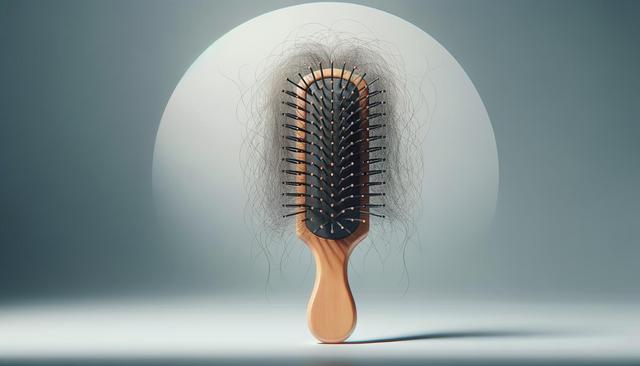Common Causes of Hair Loss in Women
Hair loss for women can stem from a variety of factors, both internal and external. Hormonal imbalances, particularly those related to thyroid disorders or menopause, often play a significant role. In addition, stress, nutritional deficiencies, and certain medical conditions like polycystic ovary syndrome (PCOS) can contribute to thinning hair. Understanding the root cause is crucial for identifying the most effective hair loss treatment for women.
Some common causes include:
- Genetics (female pattern baldness)
- Hormonal shifts during pregnancy or menopause
- Iron or vitamin D deficiencies
- Autoimmune diseases such as alopecia areata
- Excessive styling or chemical treatments
By consulting a healthcare professional, women experiencing hair loss can receive a proper diagnosis and begin exploring personalized treatment options.
Recognizing the Early Signs of Thinning Hair
Early detection plays an important role in managing hair loss effectively. Many women notice subtle signs before significant hair thinning occurs. These may include increased hair shedding during brushing or showering, a widening part, or a visible scalp through the hair. Recognizing these early indicators allows for timely intervention and the implementation of hair growth treatment for women.
Signs to watch for include:
- More hair than usual on your pillow or in the shower drain
- A noticeable change in hair texture or density
- Visible thinning around the crown or temples
- Scalp irritation or inflammation
Addressing these signs early can improve the chances of successful hair regrowth for women by starting appropriate treatments before the condition becomes more advanced.
Effective Treatment Options for Hair Regrowth
Fortunately, there are a variety of options available when it comes to female hair loss treatment. From topical solutions to oral medications and lifestyle changes, the right approach depends on the underlying cause and the individual’s health profile. Many women benefit from a combination of treatments to maximize results and support long-term hair health.
Some widely used options for hair growth for women include:
- Topical treatments that stimulate hair follicles
- Prescription medications that regulate hormones
- Nutritional supplements tailored for hair health
- Low-level laser therapy (LLLT)
- Hair-friendly shampoos and conditioners formulated for thinning hair
Incorporating these treatments under the guidance of a healthcare provider can help manage hair loss and promote regrowth over time.
Daily Habits That Support Hair Health
While medical treatments are essential, daily care and lifestyle habits also play a critical role in maintaining healthy hair. For those seeking thinning hair women treatment, small adjustments in routine can contribute meaningfully to overall hair strength and vitality. Simple changes such as reducing heat styling, using gentle hair products, and ensuring a balanced diet can make a noticeable difference over time.
Consider the following habits to support hair regrowth for women:
- Eat a diet rich in protein, iron, and omega-3 fatty acids
- Limit the use of hot tools and harsh chemical treatments
- Massage the scalp regularly to stimulate circulation
- Use wide-tooth combs to reduce breakage
- Stay hydrated and manage stress through mindfulness or exercise
These practices, when combined with a targeted hair growth treatment for women, can help reinforce the health of hair follicles and reduce further loss.
Emotional Impact and Coping Strategies
Hair loss for women can have a profound emotional impact, affecting self-esteem and confidence. It’s important to acknowledge these feelings and seek support when needed. Whether through talking to a healthcare professional, joining support groups, or connecting with others going through similar experiences, emotional health is just as important as physical treatment.
Coping strategies include:
- Practicing self-compassion and patience during treatment
- Exploring hairstyles or headwear that feel comfortable and empowering
- Engaging in activities that boost self-esteem and reduce stress
- Seeking therapy or counseling if hair loss leads to anxiety or depression
Recognizing that you’re not alone and that effective female hair loss treatment options are available can provide reassurance and hope during the journey.
Conclusion: Moving Forward with Confidence
Hair loss can be a challenging experience, but with the right information and support, women can navigate it with resilience and confidence. From identifying causes to exploring hair loss treatment for women, there are many paths to managing and improving hair health. Whether you’re noticing early signs or seeking solutions for ongoing hair thinning, know that effective treatments and supportive resources are available to help you feel empowered every step of the way.




Leave a Reply